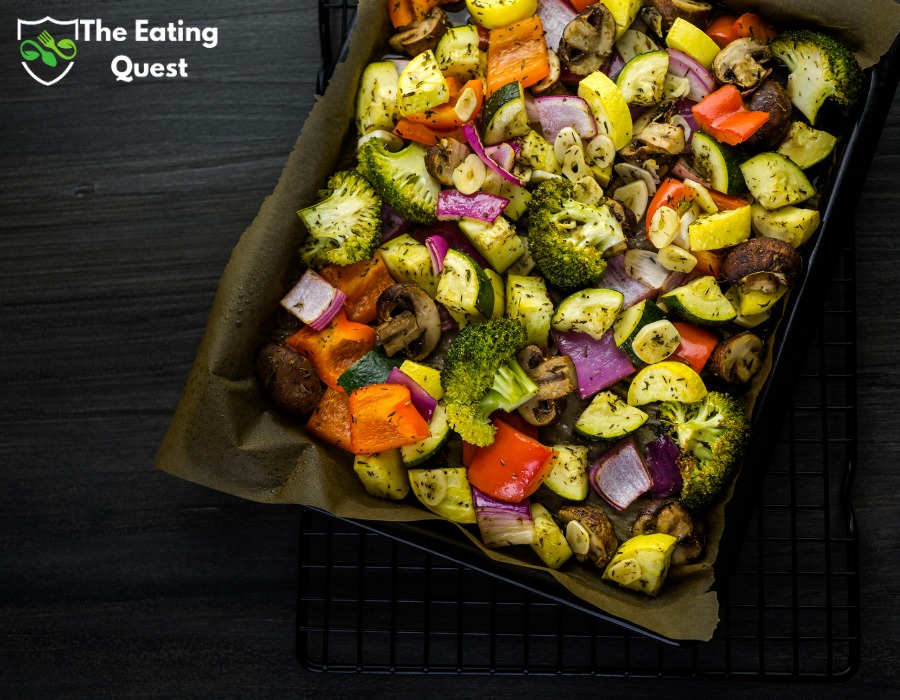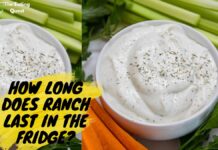If you’re someone who meals preps or cooks in bulk, you may be wondering how long you can keep cooked vegetables in the fridge. Knowing how long you can store your food safely is essential to avoid foodborne illnesses and spoilage. In this article, we’ll explore how long you can keep cooked vegetables in the fridge and provide some tips on how to store them properly.
When it comes to cooked vegetables, the general rule is that they can last in the fridge for 3-5 days. However, this can vary depending on the type of vegetable and how it’s been stored. Some vegetables, such as broccoli and cauliflower, spoil faster than others. Additionally, If you have left your cooked vegetables at room temperature for more than 2 hours, discard them.
Proper storage is critical to extending the shelf life of your cooked vegetables. Store them in an airtight container or resealable bag to prevent moisture and bacteria from getting in. You can also consider freezing your cooked vegetables if you don’t plan on eating them within a few days. Following these tips, you can safely and deliciously enjoy your cooked vegetables for longer.
How Long Can You Keep Cooked Vegetables in the Fridge?
-
Cooked Leafy Greens
When it comes to cooked leafy greens, such as spinach, kale, and collard greens, they can be stored in the fridge for up to 5 days. Store them in an airtight container or a resealable bag to keep them fresh for as long as possible.
-
Cooked Root Vegetables
Cooked root vegetables, such as carrots, beets, and potatoes, can last up to 7 days in the fridge. It’s essential to store them in an airtight container or a resealable bag to prevent them from drying out.
-
Cooked Cruciferous Vegetables
Cooked cruciferous vegetables, such as broccoli, cauliflower, and Brussels sprouts, can last up to 5 days in the fridge. Store them in an airtight container or a resealable bag to keep them fresh for as long as possible.
-
Cooked Nightshade Vegetables
Cooked nightshade vegetables, such as tomatoes, peppers, and eggplants, can last up to 5 days in the fridge. Store them in an airtight container or a resealable bag to prevent them from drying out.
-
Cooked Legumes
Cooked legumes, such as beans and lentils, can last up to 5 days in the fridge. Store them in an airtight container or a resealable bag to keep them fresh for as long as possible.
-
Cooked Corn and Peas
Cooked corn and peas can last up to 5 days in the fridge. Store them in an airtight container or a resealable bag to prevent them from drying out.
-
Cooked Squash and Pumpkin
Cooked squash and pumpkin can last up to 5 days in the fridge. Store them in an airtight container or a resealable bag to keep them fresh for as long as possible.
-
Cooked Mushrooms
Cooked mushrooms can last up to 3 days in the fridge. It’s essential to store them in an airtight container or a resealable bag to prevent them from drying out.
Factors That Affect the Shelf Life of Cooked Vegetables
Several factors can affect their shelf life when it comes to storing cooked vegetables. Here are some of the most important factors to consider:
-
Type of Vegetable
The type of vegetable you are storing can significantly impact how long it will last in the fridge. Some vegetables, like carrots and potatoes, can last several weeks if stored properly. Others, like leafy greens, tend to wilt and spoil more quickly. It’s essential to know the specific shelf life of each vegetable you are storing to plan accordingly.
-
Storage Temperature
The temperature at which you store your cooked vegetables is also critical. We should always store Vegetables in the refrigerator at a temperature of 40°F or below. If the temperature is too warm, bacteria can grow more quickly, which can cause the vegetables to spoil more quickly.
-
Storage Container
The container you use to store your cooked vegetables can also make a big difference in their shelf life. Airtight containers are best, as they help to keep out moisture and prevent the vegetables from drying out. Plastic containers or resealable bags are good options if they are airtight.
-
Moisture Content
The moisture content of your cooked vegetables can also affect their shelf life. Vegetables high in moisture, like cucumbers or tomatoes, tend to spoil more quickly than those with lower moisture content. Removing any excess moisture from your vegetables before storing them in the fridge is essential to help extend their shelf life.
-
Acidity Level
The acidity level of your cooked vegetables can also affect how long they will last in the fridge. Like tomatoes, vegetables with a higher acidity level tend to spoil more quickly than those with a lower acidity level. If you are storing vegetables with a high acidity level, it’s essential to keep them in an airtight container to prevent them from reacting with the air and spoiling more quickly.

How to Store Cooked Vegetables in the Fridge
-
Cooling Down Cooked Vegetables
Before storing cooked vegetables in the fridge, it is essential to let them cool down to room temperature. Putting hot food directly into the fridge can raise the temperature and potentially cause other foods to spoil. To cool down your cooked vegetables, let them sit on the counter for about an hour, or place them in a shallow container and put them in the fridge for 20-30 minutes.
-
Storing Cooked Vegetables in the Fridge
Once your cooked vegetables have cooled down, it’s time to store them in the fridge. Here are a few tips to keep in mind:
- Store cooked vegetables in an airtight container or a resealable plastic bag.
- Label the container or bag with the contents and the date to keep track of how long it has been in the fridge.
- Store cooked vegetables on the fridge’s top shelf, where the temperature is most consistent.
- Avoid storing cooked vegetables in the fridge door, as the temperature can fluctuate more.
- Do not stack containers on each other, as this can cause uneven cooling and potentially spoil the food.
-
Reheating Cooked Vegetables
When reheating cooked vegetables, it is vital to do so safely to avoid any risk of foodborne illness. Here are a few tips to keep in mind:
- Reheat cooked vegetables to an internal temperature of 165°F (74°C).
- Reheat cooked vegetables in the oven, on the stove, or in the microwave.
- If using the microwave, cover the container with a damp paper towel to prevent the vegetables from drying.
- Do not reheat cooked vegetables more than once.
Why Is It Important to Know How Long You Can Keep Cooked Vegetables in the Fridge?
Like most people, you probably have a few containers of leftovers in your fridge right now. While it’s convenient to have ready-to-eat meals on hand, knowing how long you can safely keep cooked vegetables in the fridge is essential to avoid foodborne illness.
Cooked vegetables can be a breeding ground for bacteria if they need to be stored properly. When cooked, vegetables are exposed to moisture and heat, creating an ideal environment for bacteria to grow. If you don’t store your cooked vegetables properly, you risk exposing yourself and your family to harmful bacteria like Salmonella, E. coli, and Listeria.
Knowing how long you can keep cooked vegetables in the fridge can help you avoid food waste and save money. If you know that your cooked vegetables will only last for three days, you can plan your meals accordingly and avoid buying more vegetables than you need.
Additionally, knowing how long you can keep cooked vegetables in the fridge can help you stay organized in the kitchen. By labeling your containers with the date when you cooked them, you can easily track how long they’ve been in the fridge and avoid accidentally eating spoiled food.
Conclusion
Now that you know how long you can keep cooked vegetables in the fridge, you can plan your meals accordingly. Always store your cooked vegetables properly to ensure their freshness and quality.
When it comes to storing cooked vegetables in the fridge, it’s essential to remember that different types of vegetables have different shelf lives. While some vegetables can last up to a week, others may only last a few days. Always check the specific vegetable’s storage guidelines to ensure you’re storing it correctly.
Additionally, label your containers with the date you cooked the vegetables so you know exactly how long they’ve been in the fridge. This will help you avoid eating spoiled food and keep you and your family safe.
Lastly, if you need clarification on the quality or safety of your cooked vegetables, it’s always better to err on the side of caution and throw them out. Your health is more important than saving a few dollars on groceries.
Also Read:
How Long Does Bologna Last in Fridge?

















